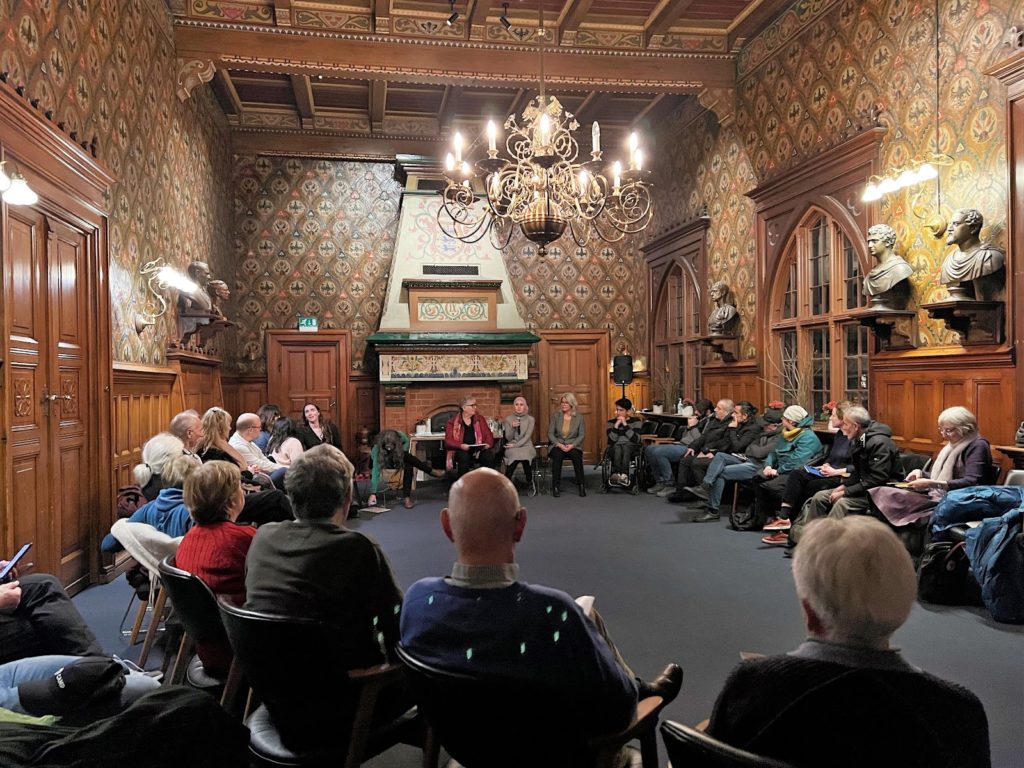On February 2023 an Open Forum within the TILDE project took place in Roskilde, Denmark. The dialogue meeting on the theme “Home in a global world” and refugees’ conditions in Denmark” has been well-attended with interesting and moving perspectives on the refugee debate. We are deeply touched that so many came and shared their stories, experiences, and opinions in this Open Forum.
Our speakers began with their own perspectives:
Fayeza Ghahremani talked about how difficult it is for a rejected asylum seeker to create a home. She has experienced being moved several times. And even now, after she has been granted a residence permit, she and her family currently live in a temporary apartment.
Erik Lyby shared his frustration with the “crazy immigration policy”. Rules and policies are constantly being changed and this puts asylum seekers in limbo.
Alma Rasmussen spoke about the great work that Roskilde Refugee Friends’ Language Café does. They help both children and adults learn languages. Fatima Ibrahim herself had attended the language café as a newcomer from Syria. She experienced how important it is to have a Danish network that can help you when you are new in the country.
Marie Olafsdottir talked about the work of Finklusiv, an organization that supports entrepreneurs from refugee backgrounds. In its short life, Finklusiv has helped 80 entrepreneurs to establish their businesses. This generates tax revenue and saves on expenses such as unemployment benefits.
During the dialogue that followed, many important themes came up.
Several participants had personal experiences of how important it is to know Danish in order to be included in society. The strong personal stories about the importance of learning Danish made one student from Croatia who attended the meeting change her mind: she immediately went home and demanded that her flatmates speak Danish to her and start learning Danish intensively.
Another recurring theme was the importance of being helped and making friends. The great voluntary work that many of the meeting’s participants engage in various associations is very important for integration.
A view that there are also problems with integration, including in deprived neighborhoods, met with strong reactions and was seen as generalizing. The dialogue unfolded. We found that some of the reasons for the strong reactions are the prejudices that participants with refugee backgrounds often experience. Even though they have been in Denmark for many years, they are still not perceived as Danish. And unfortunately, they also face harassment, such as being shouted at on the bus. The view on integration problems was also developed: in socially deprived neighborhoods, where many people from other ethnic backgrounds live, many residents have social problems. If the neighbor himself has problems, there are not so many resources to help with the Danish language and other things. Gradually during the meeting, a greater degree of understanding was created. And a consensus that it is good that there is more focus on integration and on learning the language.”
